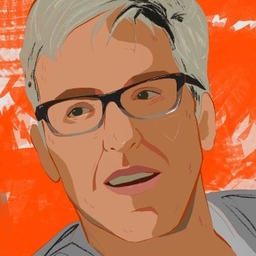
Steven D. Levitt
Host at People I (Mostly) Admire
dad, economist, @freakonomics co-author, @center4risc co-founder, podcast host @mostlyadmiring
Articles
-
1 week ago |
freakonomics.com | Steven D. Levitt
Between teaching for 25 years and having a whole bunch of kids, I spent a lot of time around young people. I thought I had a pretty good idea of how to motivate them. Then I met today’s guest, David Yeager, and I realized, like most people, I’ve been doing all wrong. YEAGER: If you can tap into that desire for status and respect then I think we can unleash this powerful source of intelligence and this powerful source for good in our culture. Welcome to People I (Mostly) Admire, with Steve Levitt.
-
3 weeks ago |
freakonomics.com | Steven D. Levitt
My guest today, Robin Wall Kimmerer, is a botanist who combines scientific methodologies with indigenous practices to study the natural world in a more holistic way. She sees the world a bit differently than the typical guest I have on this show. KIMMERER: What I marvel at is the economy of nature, where the wealth is diversity, clean water, and bird song. And it’s this disconnect between the biophysical laws of how ecosystems work and how market economics work.
-
4 weeks ago |
freakonomics.com | Steven D. Levitt
Today’s episode is an encore presentation of a conversation I had with B.J. Miller way back in 2021. B.J. Miller is a physician who specializes in end-of-life care. You might expect an episode on dying to be depressing, but I suspect you will find that B.J. Miller is such an extraordinary human being that this episode is anything but depressing. For me, this is one of the most uplifting episodes we’ve ever done. * * * If there’s one topic that nobody wants to talk about, it’s death.
-
4 weeks ago |
freakonomics.com | Stephen Dubner |Austan D. Goolsbee |Steven D. Levitt |Chad Syverson
Episode Transcript I first met the economist Austan Goolsbee around 20 years ago. I was out at the University of Chicago, spending time with another Chicago economist, Steve Levitt, who would become my Freakonomics friend and co-author. Levitt could be shy and soft-spoken; Goolsbee was neither.
-
1 month ago |
freakonomics.com | Steven D. Levitt |Tom Holland |Jens Ludwig
If you think history’s boring, chances are that you’ve never listened to today’s guest, Tom Holland. He’s a best-selling author and co-host of the ultra-popular podcast, The Rest is History. I’m not exactly sure how they do it, but he and his co-host, Dominic Sandbrook, can find a way to make just about any historical event fascinating.
Try JournoFinder For Free
Search and contact over 1M+ journalist profiles, browse 100M+ articles, and unlock powerful PR tools.
Start Your 7-Day Free Trial →X (formerly Twitter)
- Followers
- 13K
- Tweets
- 26
- DMs Open
- No

I had a great time speaking with the @BigBrainsUC Podcast about my work in economics, the importance of #DataScience in making decisions, and some of our ongoing projects at @center4risc!

Having trouble making a different decision? Prof. @StevenDLevitt says don't overthink it—and just flip a coin. The @UChicago scholar talks about his innovative research, the success of the @Freakonomics book and #podcast, and his unique spin on #economics. https://t.co/H61wHjpEjv

16 states have managed to introduce #DataScience basics to K-12 students without issue, yet a controversy erupted in CA with their math framework. I wrote to @FortuneMagazine why I think the 3-year debate over math seemed to miss the forest for the trees: https://t.co/vHlOqVbDK9

RT @BigBrainsUC: What would you want to ask "Freakonomics" co-author @StevenDLevitt? Big Brains is interviewing the renowned UChicago econo…


